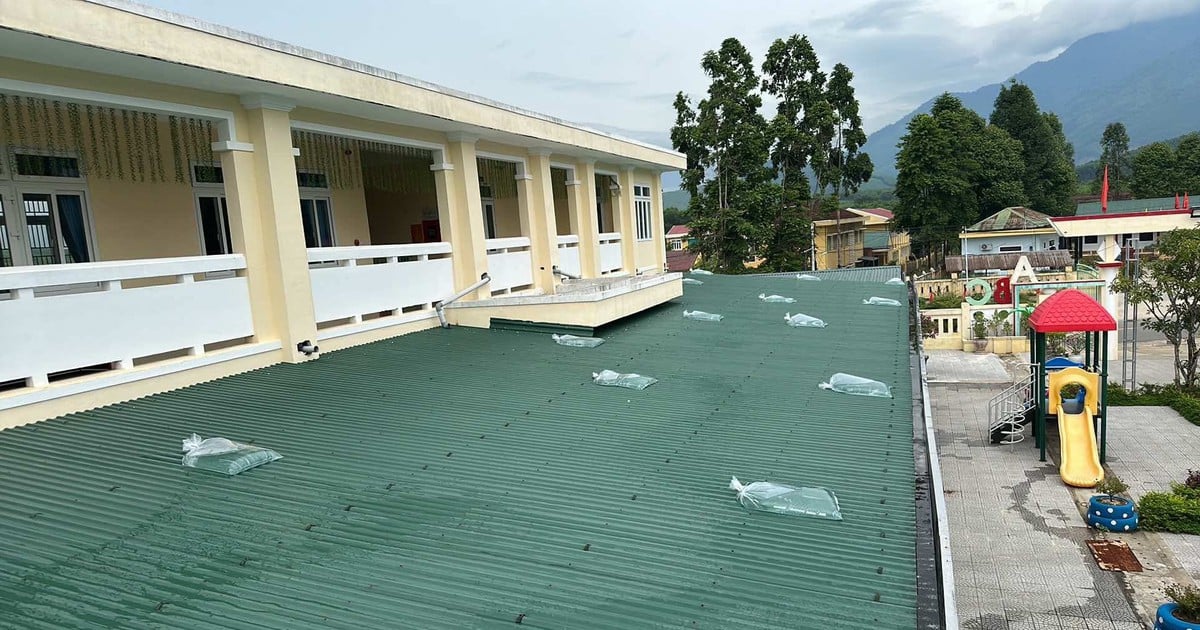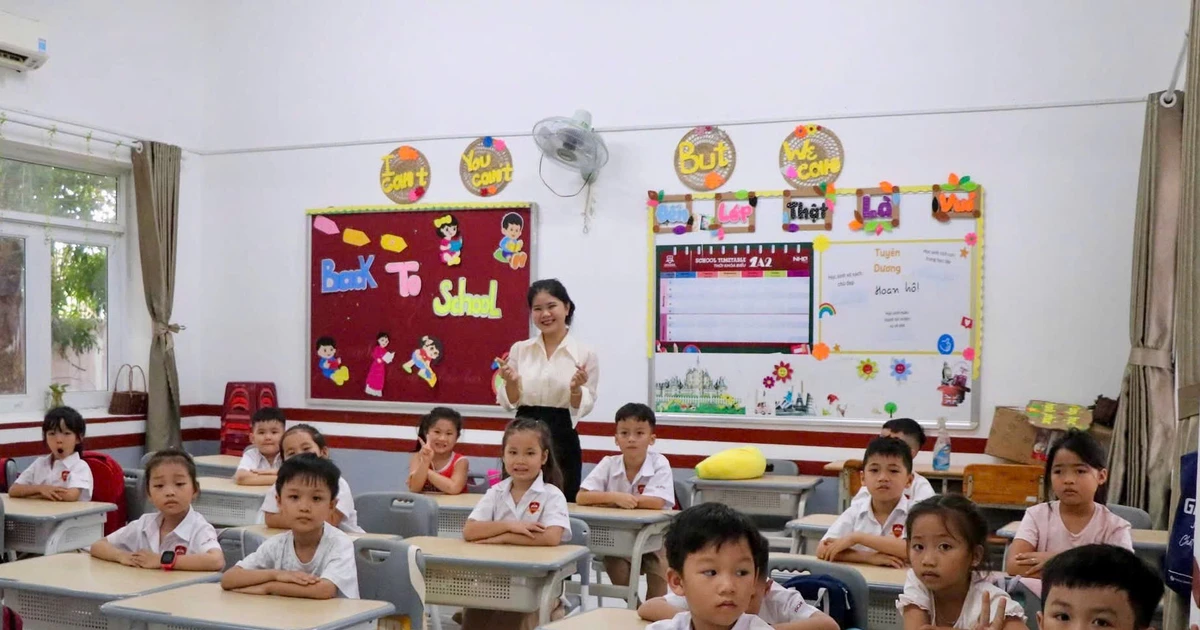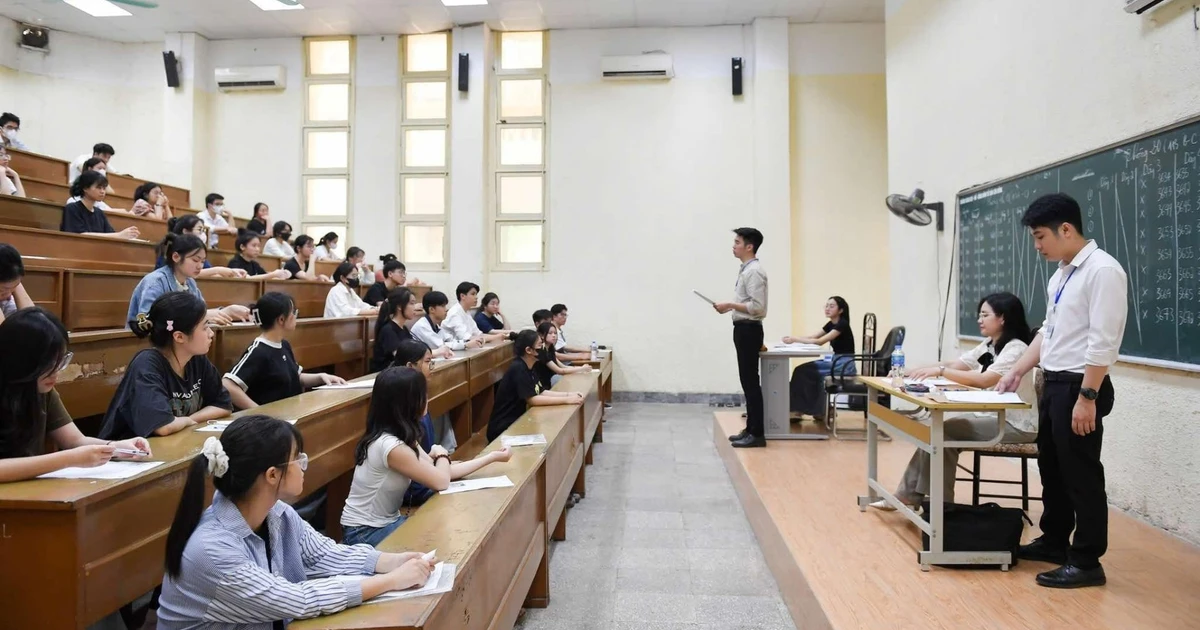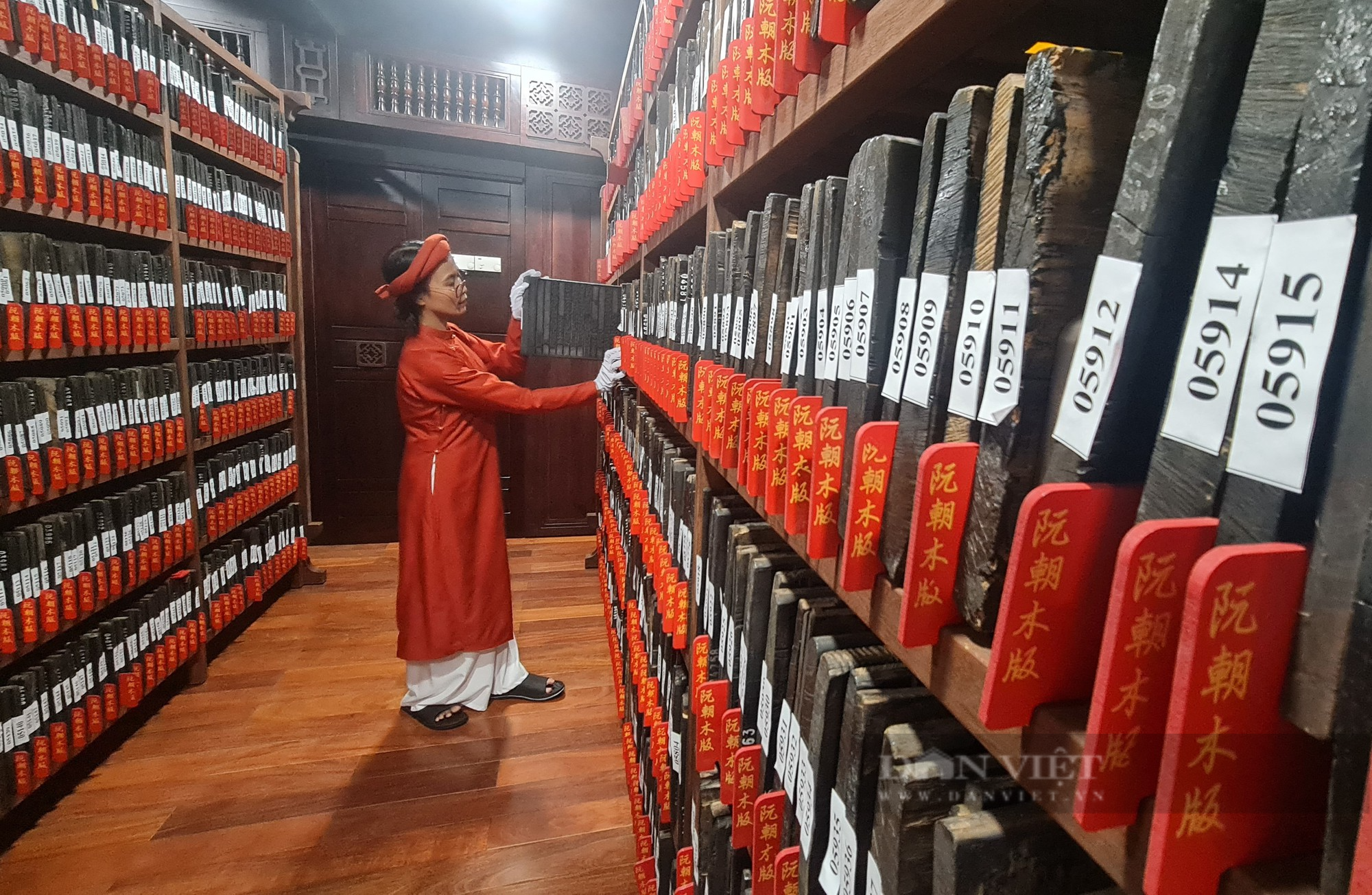Contract teachers only receive 6 million VND/month compared to 20 million VND for permanent teachers.
After 4 years of teaching in Ho Chi Minh City, teacher Nguyen Thi Dung decided to return to her hometown of Quang Hoa, Dak Glong District, Dak Nong Province to devote herself to education. Although born and raised here, Ms. Dung still faced many challenges when working in a particularly difficult commune.
She is currently teaching under a short-term contract under Decree 111 of 2022, with a salary of more than 6 million VND and only a 9-month contract. Although she loves her job and chooses to stay in remote areas, she still hopes that the State will make appropriate adjustments to improve conditions for contract teachers and invest more in education in disadvantaged areas.

Although they love their profession and choose to stay in remote areas, the biggest wish of many contract teachers is that the State makes appropriate adjustments to improve living conditions.
"In a region like this, teachers certainly face many difficulties. When I return to my hometown, with my enthusiasm and love for my homeland, I believe I can do it. I hope the government will pay more attention to local education because the conditions here are still very difficult. I really hope the contract can be extended, about 12 months, so that the economy can stabilize, helping us feel secure in our work," Ms. Dung hoped.
Teacher Trinh Thi Thanh Thuy (born in 1999, residing in Gia Nghia City, Dak Nong Province) has chosen to work at Le Huu Trac Secondary and High School, Dak Ngo Region 3 Commune, Tuy Duc Border District (under contract under Decree 111 of 2022). For more than a year now, Ms. Thuy has not only had to teach extra classes but also take on additional Math classes due to the school's severe shortage of teachers. Working at a school far from home (more than 50km away), nearly 100% of the students are ethnic minorities, and the facilities are lacking, the young teacher has to face a lot of pressure. However, a salary of just over 6 million VND/month and a 9-month contract are still not enough to ensure her life.

Teacher Trinh Thi Thanh Thuy (born in 1999, residing in Gia Nghia City, Dak Nong Province) has chosen to work at Le Huu Trac Secondary and High School, Dak Ngo Region 3 Commune, Tuy Duc Border District.
"Currently, the contract only lasts for 9 months during the school year, so it is really difficult. My house is in Gia Nghia, more than 50km from the school, but my income is not enough to meet my living needs. I hope there will be more support policies, such as gas allowances. At the same time, I also hope that there will be more teachers soon, because the school is currently lacking a lot," Ms. Thuy shared.
Mr. Nguyen The Hiet, Principal of Le Huu Trac Secondary and High School (Dak Ngo Commune, Tuy Duc District), said that there is a big difference in income between contract teachers and permanent teachers at the school. As a school in a commune in Region 3, permanent teachers currently receive a 70% allowance (preferential allowance based on the profession) along with an initial attraction level equivalent to 10 months of basic salary (first-time allowance when starting work), plus a 70% allowance (attraction allowance) for the first 5 years. Teachers with 5-10 years of experience receive an allowance of 0.5; 10-15 years is 0.7; and from 10-15 years will receive an allowance of 1.0.
Therefore, permanent teachers earn around 20 million VND/month, while contract teachers earn just over 6 million VND, and are only paid for 9 months.

Signing teacher contracts under Decree 111 is only a temporary solution, and in the long term, the Central Government needs to quickly supplement staffing quotas to ensure teaching and learning at the local level.
Mr. Nguyen The Hiet said that attracting teachers to teach in remote schools is difficult, but retaining them is even more difficult. Therefore, the Principal of Le Huu Trac Secondary and High School proposed that the State should have policies to ensure a stable life for young teachers working in difficult areas.
"Currently, the school is short of 8 teachers, and has contracted 5 people according to Decree 111. All teachers want to contribute and stay with the school for a long time. In the long term, we hope to be granted more positions so that contract teachers can take the official exam and continue to work with the school," Mr. Nguyen The Hiet shared.
Contract teachers need support to stay in the profession
Mr. Phan Thanh Hai, Director of the Dak Nong Department of Education and Training, said that the province lacks nearly 1,600 teachers this school year, which will greatly affect teaching and learning, especially in remote and ethnic minority areas. To temporarily solve the problem, the province has assigned 622 contract quotas according to Decree 111 of 2022 of the Government. However, a 9-month contract with a low income is not enough to ensure a living, making it difficult to attract teachers, especially for subjects such as IT and English. According to Mr. Phan Thanh Hai, the province is directing this issue to be reviewed and adjusted to be more appropriate.
"When implementing contracts under Decree 111, the current salary level is not enough to attract and encourage contract teachers, especially in remote areas. The Provincial Party Committee, Council and People's Committee are orienting to build a Resolution to create specific attraction policies for teachers working in these difficult areas," said Mr. Phan Thanh Hai.

Mr. Phan Thanh Hai, Director of Dak Nong Department of Education and Training, said the province lacks nearly 1,600 teachers this school year, greatly affecting teaching, especially in remote and ethnic minority areas.
According to the Department of Home Affairs of Dak Nong province, in the 2024-2025 school year, the whole province is facing a shortage of 1,545 teachers, especially serious at the primary level with 699 teachers. This shortage not only greatly affects the quality of teaching but also makes it impossible for many remote, isolated and ethnic minority areas to open preschool classes for children aged 3-5. In particular, subjects under the 2018 general education program such as information technology and English cannot be implemented according to regulations.
What is worrying is that although the province is seriously lacking teachers, it still has to face the task of streamlining its staff. In 2024, the province was assigned to add 316 positions, but had to streamline 323 people, leading to a deficit of 7 positions.
Ms. Nguyen Thi Thu Huong, Director of the Department of Home Affairs of Dak Nong province, emphasized that signing teacher contracts according to Decree 111 is only a temporary solution, and in the long term, the Central Government needs to quickly supplement the staffing quota to ensure teaching and learning in the locality.
"The teacher contract according to Decree 111 dated October 30, 2022 of the Government is stipulated not to exceed 70% of the total shortage of staff. However, the Central Government has recommended that signing a contract is only a temporary solution. The Provincial People's Committee will continue to report to the Ministry of Home Affairs and the Ministry of Education to advise the Government on supplementing staff, in order to solve the problem of teacher shortage in the long term," said Ms. Nguyen Thi Thu Huong.

The shortage of teachers not only greatly affects the quality of teaching but also makes it impossible for many remote areas and ethnic minority areas to open preschool classes for children aged 3-5.
Teaching in remote areas is always a challenging choice, but with love for the profession and dedication, many teachers are still persistent in contributing, bringing knowledge to students in Dak Nong. However, the fact that the Central Government has not been able to allocate enough staffing quotas has caused many difficulties for teachers. Therefore, the local government and functional agencies need to consider soon to have appropriate support policies, helping teachers feel secure in their long-term commitment to the education career.
Source: https://danviet.vn/chenh-lech-luong-hon-3-lan-giua-giao-vien-hop-dong-va-bien-che-2024092022282016.htm








































































































Comment (0)